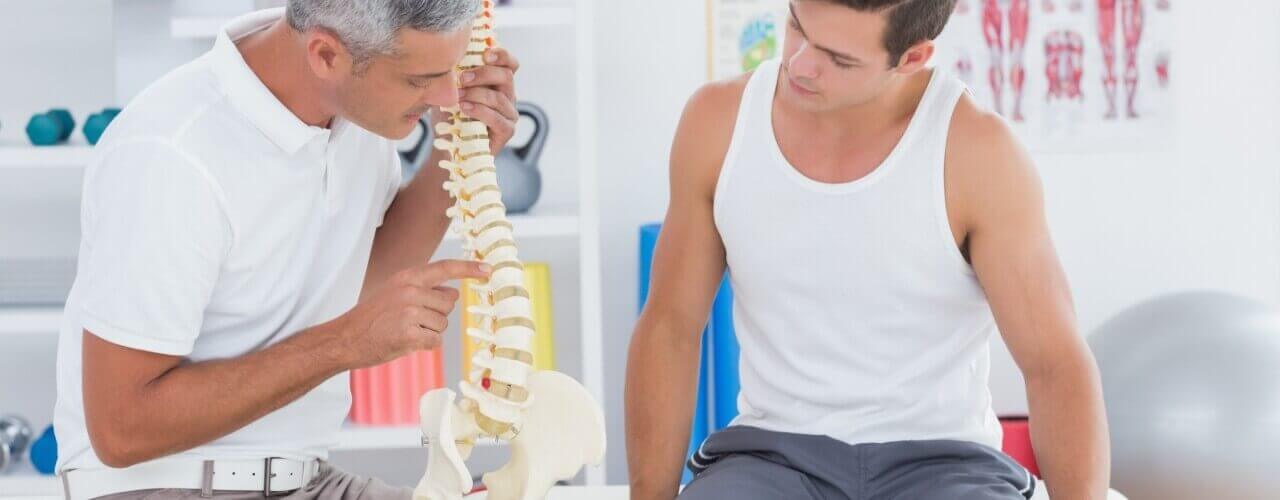According to a study published in the American Journal of Sports Medicine, about 30 percent of male athletes who regularly play contact sports such as football, basketball, or soccer will develop arthritis in their knees and hips at some point.
Arthritis is a common term used to describe over 100 different types of joint pain and disease. Many people believe that arthritis only affects elderly people, but this is far from the truth. Healthline states “the symptoms of arthritis usually develop over time, but they may also appear suddenly. Arthritis is most commonly seen in adults over the age of 65, but it can also develop in children, teens, and younger adults. Arthritis is more common in women than men and in people who are overweight.
Over-the-counter medications are a commonly used remedy for those with arthritis, however, the unfortunate outcome is that these kinds of medications can cause some unpleasant, long-lasting side effects. There are other alternatives to managing arthritis pain!
If you’re looking for a natural and safe treatment for arthritis pain, physical therapy could be a good option for you. Contact Trinity Physical Therapy today to learn how you can kick your medications while still relieving your arthritis pain.
Do you have one of these types of arthritis?
Inflammatory/Rheumatoid Arthritis: Rheumatoid arthritis is one example of arthritis where the body’s immune system will attack joint tissues and cause intense inflammation. Inflammatory arthritis often has a cause rooted in a person’s genes, and it is usually treated with heavy doses of drugs and over-the-counter medications. However, depending on the severity of symptoms, physical therapy may be recommended for treatment as well, as over the counter medications typically are only a band-aid for the problem.
Metabolic Arthritis: Metabolic arthritis is typically caused by lessened kidney function. The most common type of metabolic arthritis is gout. Gout is caused by uric acid crystals building up in the joints of the extremities, especially the feet. Physical therapy can help gout patients restore range of motion in the affected area and even reduce the buildup of the acidic crystals that accumulate in the joints.
Osteoarthritis: Osteoarthritis is the most common form of arthritis. Physical therapy can often help to reduce osteoarthritis pain without medication, especially if the arthritis is mild to moderate. This particular condition is caused by a reduction in joint cartilage as it wears away over time. This degeneration causes bones to rub together, which leads to pain and swelling.
What to expect with physical therapy for arthritis
Physical therapy is a 100% safe, natural, and effective method of pain management, and a better option for pain than drugs and over the counter medications. Your physical therapist will be a trained movement specialist who is licensed to handle your condition with care.
A physical therapist’s goal is to help manage your arthritis pain and preserve or restore your normal range of motion. They will also help you to begin increasing muscle strength to reduce stress on your joints, and other natural treatment options.
More benefits of working with a physical therapist include:
- Improved posture: Sitting and standing up straight can truly do amazing things for your pain! A physical therapist can help you to improve your posture, which will also help to reduce stress on your joints.
- Control your weight: Your physical therapist will work with you to control your weight through exercise and diet. You can prevent added stress on your joints by watching your weight, which is a leading cause of arthritis symptoms.
- You’ll learn targeted exercises and stretches: Physical therapy treatment typically includes light exercises and stretching to help restore and increase range of motion in the affected painful areas. You can also do these by yourself at home once your physical therapist is confident you’re performing them without a problem.
- Improved sleep schedule: Your physical therapist will also recommend setting a solid schedule for rest and sleep to complement your exercises. Resting helps the body to heal faster and decrease arthritis inflammation and pain.
Every physical therapy treatment regimen is different based on a patient’s needs and their specific type of arthritis. The best way to get started on a drug-free treatment through physical therapy is by calling and scheduling an appointment with one of our therapists!
They can properly assess your condition, pinpoint the source of your pain, ask you some health-related questions, and create a specialized treatment plan specifically catered to you and your needs.
Why medications aren’t recommended over physical therapy
We know you’ve probably got a cabinet full of over-the-counter medications for quick pain relief. Who doesn’t? It’s pretty common for doctors to prescribe an NSAID pain reliever to a patient with arthritis, such as Advil or ibuprofen, antibiotics, corticosteroids, or antirheumatic drugs.
Even though these can provide temporary pain relief, they all carry a risk of side effects, some of which can be extremely serious if they’re taken consistently for a long period of time. NSAIDs can cause you to have a higher chance of developing a blood clot, having a stroke, or heart attack. Corticosteroids aren’t much better — they contribute to high blood sugar levels, cataracts, and even bone loss, which is the last thing a patient with arthritis needs. It’s imperative that you learn better ways to not only manage your pain but to treat it at the source.
Ready to start really treating your pain?
You don’t have to live in pain anymore. Whether your arthritis condition is in your hands, knees, or ankles, or whether it has been caused by aging or playing sports, our physical therapists can help you! Contact Trinity Physical Therapy to get on the road to recovery from arthritis pain!
Source:
- https://www.healthline.com/health/arthritis#symptoms
- Inflammatory Arthritis: Rheumatoid & Reactive, Gout & Morewww.hss.edu › condition-list_inflammatory-arthritis
- Metabolic Syndrome in Rheumatoid Arthritis – NCBI – NIHwww.ncbi.nlm.nih.gov › pmc › articles › PMC3557423
- https://www.mayoclinic.org/diseases-conditions/arthritis/multimedia/osteoarthritis-vs-rheumatoid-arthritis/img-20008728
Tags: Natural Treatment, Natural Pain Relief, physical therapist, helpful tips, health, pain treatment, physical therapy, Physical Health, physical fitness, fitness, health and wellness, Trinity Physical Therapy, physical activity, arthritis




